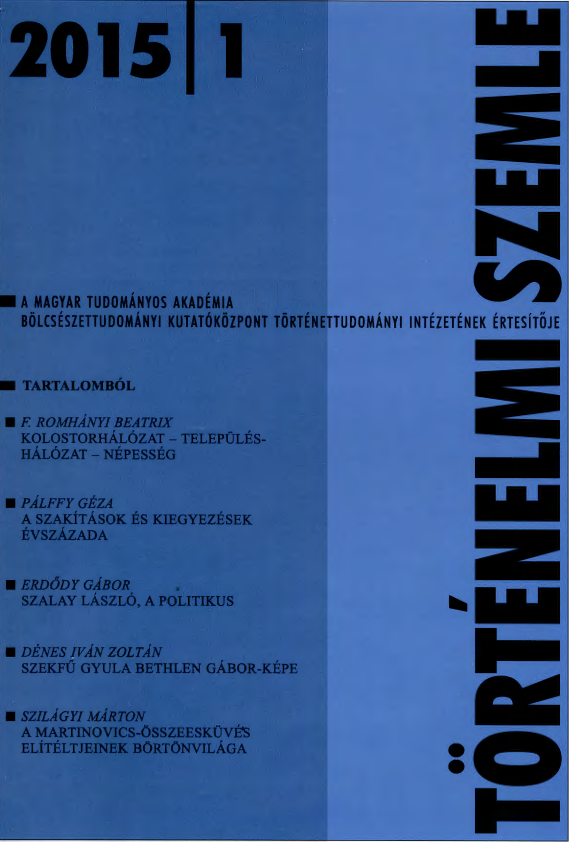Elviselni az elviselhetetlent - A Martinovics-összeesküvés elítéltjeinek börtönvilága
To Bear the Unbearable. The Prison-World of the Convicts
of the Martinovics Conspiration
Author(s): Márton SzilágyiSubject(s): Psychology, Geography, Regional studies, Communication studies, Penology, 18th Century, 19th Century
Published by: Magyar Tudományos Akadémia Bölcsészettudományi Kutatóközpont Történettudományi Intézet
Keywords: Martinovics Conspiration; convicts; Ferenc Kazinczy; prisonpsychosis; Habsburg Monarchy;
Summary/Abstract: The suppression of the so-called Martinovics Conspiration began in 1794. Our knowledge about the strategies that those persons who were then arrested and investigated and finally convicted elaborated and applied in order to survive life in the prison is limited and undetailed. We do dispose, however, of an exceptional source, namely the memoirs of Ferenc Kazinczy, entitled the Diary of my Captivity, which can be complemented by a great number of other letters and notices from his written legacy. On the basis of this material, it is possible to outline several possibilities and circumstances which enlighten the reactions elicited by the imprisonments which extended for several years, and were to be spent in individual cells. It is these personal strategies that the present study aims to examine systematically. The example of Kazinczy himself is a perfect illustration of how the emergence of prisonpsychosis, which in fact overcame some of the prisoners, could effectively be prevented by some forms of intellectual practices such as the secret, knocking-based method of interprison communication, and the likewise illegal forms of reading, writing and drawing. An especially great importance was attached to the Latin language; frequently it was the very medium which made communication possible, for contemporary prisons were organised on an all-imperial basis, which meant that people of various linguistic backgrounds could become cell-neighbors. Consequently, those lacking sufficient knowledge of Latin were liable to exclusion from prison communication. The prison memoirs of Kazinczy are not only exceptional in making such a nuanced approach possible, but also because they constitute the only such extensive text written at the turn of the 18th and 19th centuries in any language of the multiethnic Habsburg Monarchy.
Journal: Történelmi Szemle
- Issue Year: 2015
- Issue No: 01
- Page Range: 121-130
- Page Count: 10
- Language: Hungarian

